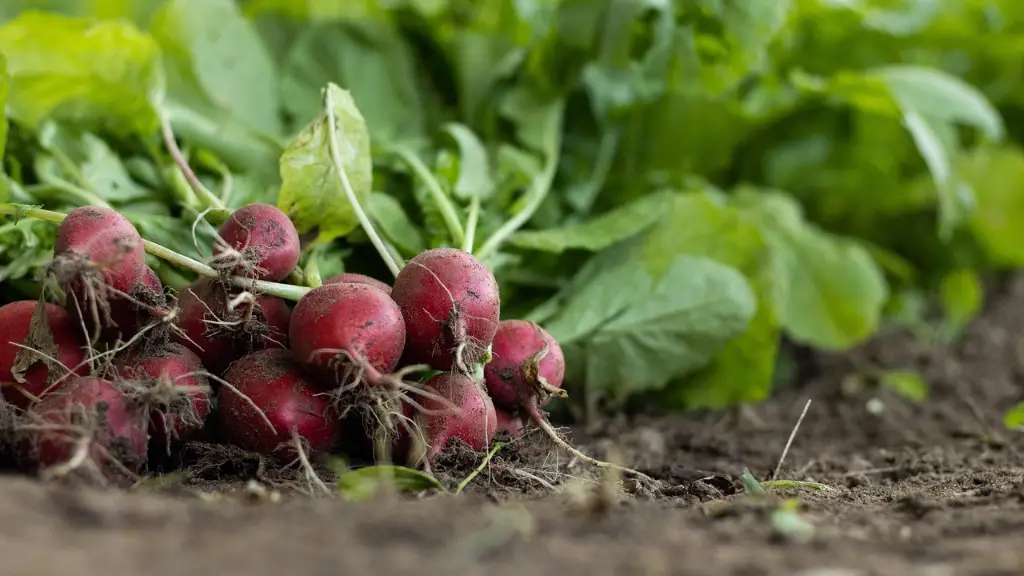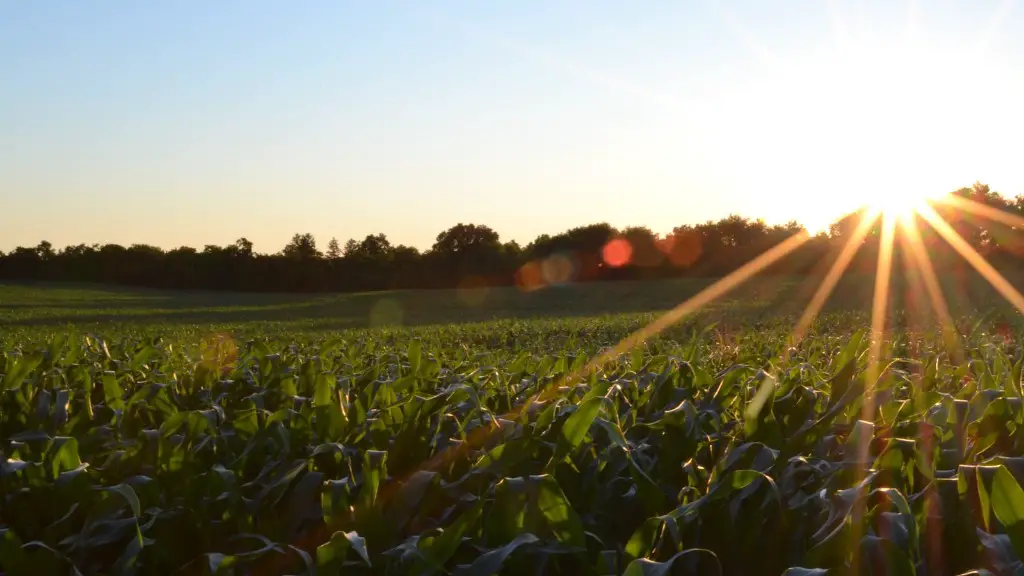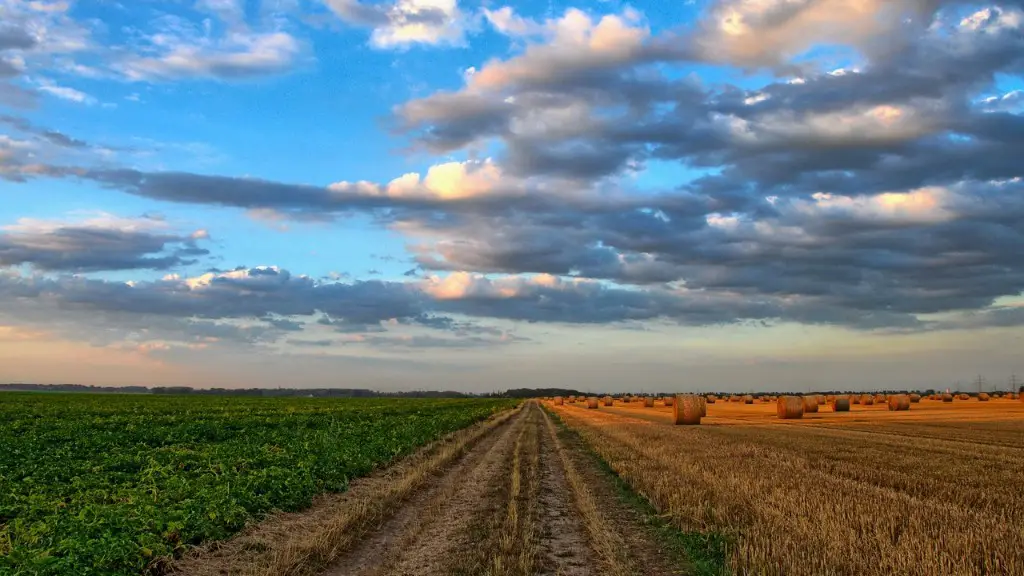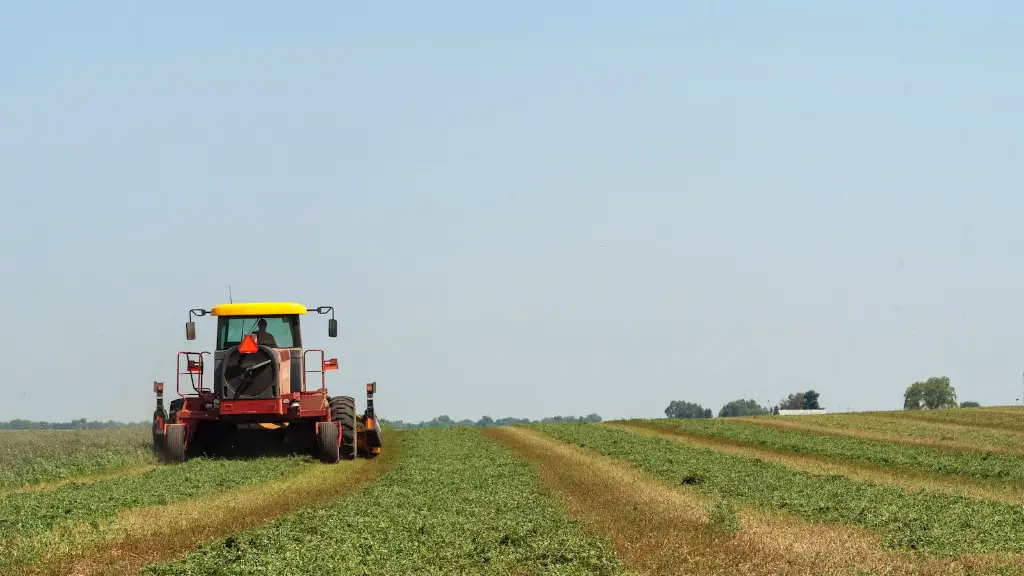Farm management is the application of business management principles to the running of a farm. It includes planning, decision-making, organisation, leadership, control and coordination of resources. Good farm management maximises the profit from the farm while minimising risk. It involves taking into account all the factors that affect the business, including the physical, financial, human and environmental resources.
Farm management is a branch of agriculture that deals with the day-to-day operations of a farm. It includes everything from planning and production to marketing and finance. farm management also includes the management of natural resources, such as soil, water, and pests.
What farm management means?
Farm management is the making and implementing of decisions involved in organizing and operating a farm for maximum production and profit. Farm management draws on agricultural economics for information on prices, markets, agricultural policy, and economic institutions such as leasing and credit.
Farm management is the process of running a farm as a business. This includes making decisions about planting, harvesting, animal husbandry, and other aspects of the farm. Good farm management is essential for farmland owners to maximize annual ROI and long-term capital appreciation.
With proper farm management, landowners can expect their farmland to not only increase in value, but also to produce annual income. This income can be used to reinvest in the farm, pay down debt, or simply to provide a comfortable lifestyle.
There are many different aspects to farm management, and the best managers are always learning and adapting to new situations. However, some basic principles of farm management include:
– Knowing your costs of production
– Maintaining accurate financial records
– Creating a marketing plan
– Diversifying your operation
– Managing risk
By following these basic principles, landowners can set their farms up for success.
How does farm management work
Agricultural managers are usually responsible for overseeing the production activities of a farm or ranch. They may hire and supervise farm and livestock workers, and determine budgets and strategies for storing, transporting, and selling crops. In some cases, agricultural managers may also participate directly in production activities.
The farmworkers are the backbone of any agricultural operation. They are responsible for the day-to-day tasks of planting, harvesting, and caring for the crops. Without them, the farm would not be able to function.
The first step in having a successful farm is to recruit talented and hardworking individuals to join the team. This can be done through word-of-mouth, online job postings, or by working with a local farm labor contractor.
Once the workers have been recruited, they need to be trained in the proper techniques for planting, harvesting, and crop care. This training can be done by the farm owner, another experienced farmworker, or through a local agricultural extension office.
After the workers have been trained, it is important to maintain the farm properties, equipment, and machinery. This includes regularly cleaning and repairing the buildings, tools, and vehicles. It is also important to advertise and market the farm’s products to potential customers.
What are the five main components of farm management?
A farm or ranch business plan is a document that sets forth the goals, resources, and methods of an operation. It serves as a road map to success and guides all decision-making on the farm or ranch.
There are six key components of a farm or ranch business plan:
1. Land Resource Management:
This component assesses the farm or ranch’s land resources and sets goals for their management. It includes an evaluation of the land’s potential for production, as well as a plan for sustainable land management.
2. Equipment and Animal Management:
This component of the business plan sets forth the goals and methods for managing the farm or ranch’s equipment and animals. It includes a plan for maintaining and repairing equipment, as well as for purchasing new equipment when necessary. It also includes a plan for animal husbandry, including feeding, housing, and health care.
3. Marketing Plan:
The marketing plan sets forth the goals and methods for marketing the farm or ranch’s products. It includes a plan for pricing the products, as well as a plan for promoting and selling them.
4. Human Resources:
The human resources component of the business plan sets forth the goals and methods for managing the farm
A successful farm manager is highly organized and skilled in managing all farm activities. They always have a clear understanding of how many work hours were spent on each farm activity, field and farm season. They are also open-minded to new technologies and are always looking for ways to improve their farm operations.
What are the four principles of farm management?
Principles of farm management are principles that guideFarm managers in their decision making. There are seven key principles of farm management:
a) The principle of variable proportions or laws of returns: This principle dictates that as more of a certain input is used, the output will increase at a diminishing rate.
b) The cost principle: This principle states that the costs incurred in producing a good or service determine the price of the good or service.
c) The principle of substitution between inputs: This principle dictates that as the price of one input increases, the farm manager will substitute another input in its place.
d) The equi-marginal returns principle or opportunity cost principle: This principle states that the farm manager will allocate resources in such a way so as to maximize returns.
e) The principle of substitution between products: This principle dictates that as the price of one product increases, the farm manager will substitute another product in its place.
f) The principle underlying decisions involving time and uncertainty: This principle dictates that the farm manager will make decisions taking into account both the time horizon over which the decision will impact the farm, and the degree of uncertainty associated with the decision.
Farm management software programs help agricultural producers reduce expenses, increase yields, better yield quality, and profitability, and lower operational risk. There are a number of software programs available, each with its own unique capabilities. When choosing a farm management program, consider the specific needs of your operation and choose a program that will help you meet those needs.
What are the tools of farm management
There are a number of different software programs available that can help farmers keep track of their crops, animals, and equipment. Many of these programs offer features that allow farmers to share data with their agronomists or other members of their farm team.
GPS technology
GPS technology can be used for a number of different tasks on the farm, from mapping fields to tracking the movements of livestock. GPS receivers are becoming more and more affordable, and many farm management software programs now offer GPS capabilities.
Data storage and backup
As more and more farm operations rely on electronic data, it’s important to have a reliable way to store and backup that data. Cloud-based storage services like Dropbox or Google Drive offer an easy and affordable way to do this.
Farm labor management software
If you hire farm workers, there are a number of software programs available that can help you keep track of employee hours, schedule shifts, and track employee productivity.
These are just a few of the many different types of technology that farm managers can use to improve their operations. Many of these tools are becoming more and more affordable, and there are likely many more innovations on the horizon that we can’t even imagine today.
Farm management is all about achieving the highest possible profitability from your farm operations. This means maximizing the net return from each enterprise on the farm, as well as ensuring the overall success of the farm business. There are a number of key factors to consider in order to achieve this, including:
-Understanding your farm’s unique strengths and weaknesses
-Selecting the right enterprises for your farm
-Optimizing your production practices
-Managing your financial resources effectively
By taking a proactive and strategic approach to farm management, you can ensure that your farm business is positioned for long-term success.
What are 10 qualities of a farm manager?
A farm manager is responsible for the overall operation and management of a farm. They must possess strong decision-making and problem-solving skills to be successful. Communication is also key, as they will need to manage workers and communicate with clients. Leadershi position. Lastly, they should haveadministration skills and knowledge of key equipment practices.
In cooperative farms, land and other resources are owned by the cooperative and members work together to farm the land. This type of management is common in northern China. In enterprise farms, the government or a private company owns the land and members work together to farm the land. This type of management is common in southern China. Individual private farms are owned by individuals and the members work independently. This type of management is common in eastern China.
What are the two main farm management concepts
There are two types of resources in an organization: fixed resources and variable resources.
Fixed resources are resources that remain constant over time. They are often physical resources, such as office space, equipment, and vehicles. They may also be human resources, such as full-time employees.
Variable resources are resources that fluctuate over time. They may be seasonal workers, part-time employees, or independent contractors. They may also be resources that are used differently at different times, such as raw materials or office supplies.
There is no one specific educational route into agricultural management, but many managers have a foundation degree or HND in an agricultural, horticultural, land, or animal-related subject. There are many qualifications available from different agricultural colleges and universities, so it is important to research the courses available and find one that fits your specific interests and needs. There is no one specific job description for an agricultural manager, but the role generally involves overseeing the day-to-day operations of an agricultural business, including crop and livestock production, land management, and machinery maintenance. Agricultural managers may also be responsible for marketing and sales, financial planning and management, and compliance with government regulations.
What skills are required to be a farm manager?
A farm manager must be able to effectively analyze data in order to make decisions about crop rotation, irrigation, and other important factors. They must also be proactive in identifying and solving problems on the farm. Finally, a farm manager must have a good understanding of machinery and be able to properly maintain and operate it.
Farmer skills are key to success in the agricultural industry. Problem-solving skills are important for identifyin and resolving issues on the farm, while interpersonal skills are key for communicating with farmhands and customers. Farm management skills are necessary for effectively managing all aspects of the farm, from crop production to financial planning. Organizational skills are also important for keeping the farm running smoothly and efficiently. By honing these skills, farmers can be successful in both their personal and professional lives.
How much is the salary of farm manager
The average total compensation for a Farm Manager with 1-4 years of experience is ₱240,000. The average total compensation for a Farm Manager with 5-9 years of experience is ₱364,000.
The median salary for agricultural and forestry production managers is R31 620 per month. This means that half of all production managers earn less than this amount and half earn more. The salary range for the majority of workers in this occupation is between R8 462 and R15 519.
Final Words
Farm management is a branch of agriculture that deals with the day-to-day operations of a farm. It includes everything from choosing what crops to grow and raising animals to managing workers and marketing the farm’s products.
Farm management is a critical component of agriculture. It includes activities such as planning, budgeting, record keeping, and managing workers. Without proper farm management, farms would not be able to operate efficiently or produce enough food to meet the demand.





